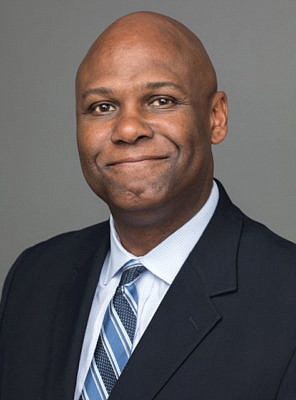Commit to affordable health care, by Ray Curry
11/8/2019, 6 a.m.
Laughter is the best medicine, says the Reader’s Digest version of America.
But not when it’s the only medicine, responds the America that far too many have known and continue to know. Not when the United States alone is one of the world’s top 33 most developed countries that does not have a form of universal health care that covers all of its population.
IguessIamjustnotinon
the joke when I see people either going without health care — something that ought to be a human right — or struggling to the breaking point to keep on top of huge medical bills when sickness or infirmity hit.
It is a national tragedy. According to the Kaiser Family Foundation, 27 million Americans were without medical coverage at the end of 2016. That number was significantly down from the more than 44 million in 2013 — just before the Affordable Care Act kicked in. But in 2017, the current ad- ministration took office, and ... after much purposeful meddling and dismantling, we saw 700,000 people moving back into the uninsured column.
Ongoing efforts to alter historic gains in health insurance coverage via the ACA, or to make receipt of Medicare contingent on work (another Republican initiative), “may further erode coverage gains seen under the ACA,” states the KFF.
We all know that assaults on the ACA are an assault on the health and well-being of millions of Americans.
So, what does it mean to be without health care in America? It is truly frightening on so many levels. How about facing each day without knowing if medical care is even available for your family? How about having to postpone necessary care and forego preventive care, such as childhood immunizations and routine check-ups? How about no regular doctor, limited or no access to prescriptions, and only seeking medical attention when it’s bordering on too late and winding up in the hospital or worse?
The United States spends two to three times as much per capita on health care as most industrialized nations. Elsewhere, governments regulate and negotiate the price of drugs and medical services; elsewhere there is no need for a vast private health-insurance bureaucracy.
How do African-Americans fair in all this?
• Non-elderly African-Americans face endemic health disparities compared to their white counterparts, such as poorer overall health and conditions such as obesity, diabetes and asthma.
• Uninsured African-Americans are more likely to fall into the coverage gap, earning too much for Medicaid but not enough for tax credits.
We must do better — right now.
I belong to the UAW. Our goal is universal health care — coverage for everyone — and we have spoken; against those who would deny coverage for those of us with pre-existing conditions; against those who would scuttle provisions like Section 1557 of the ACA, which combats discrimination based on race, color, national origin, sex, age or disability.
All these reforms are under threat. So, we fight on.
We recently signed on to a grassroots campaign to lower the cost of prescription drugs. “Lower Drug Prices Now!” is a coalition comprised of 53 state and national organizations that are committed to forcing prescription drug reforms that will stop Big Pharma price-gouging and put people ahead of profits. No more should working Americans have to make decisions between put- ting food on the table and filling their insulin prescription.
I truly believe, as my union brothers and sisters do, that with universal health care, working people can turn to employers for higher wages, for job security and retirement security because health care would be off the table.
The writer is secretary-treasurer of the UAW, the United Automobile, Aerospace and Agricultural Implement Workers of America.







